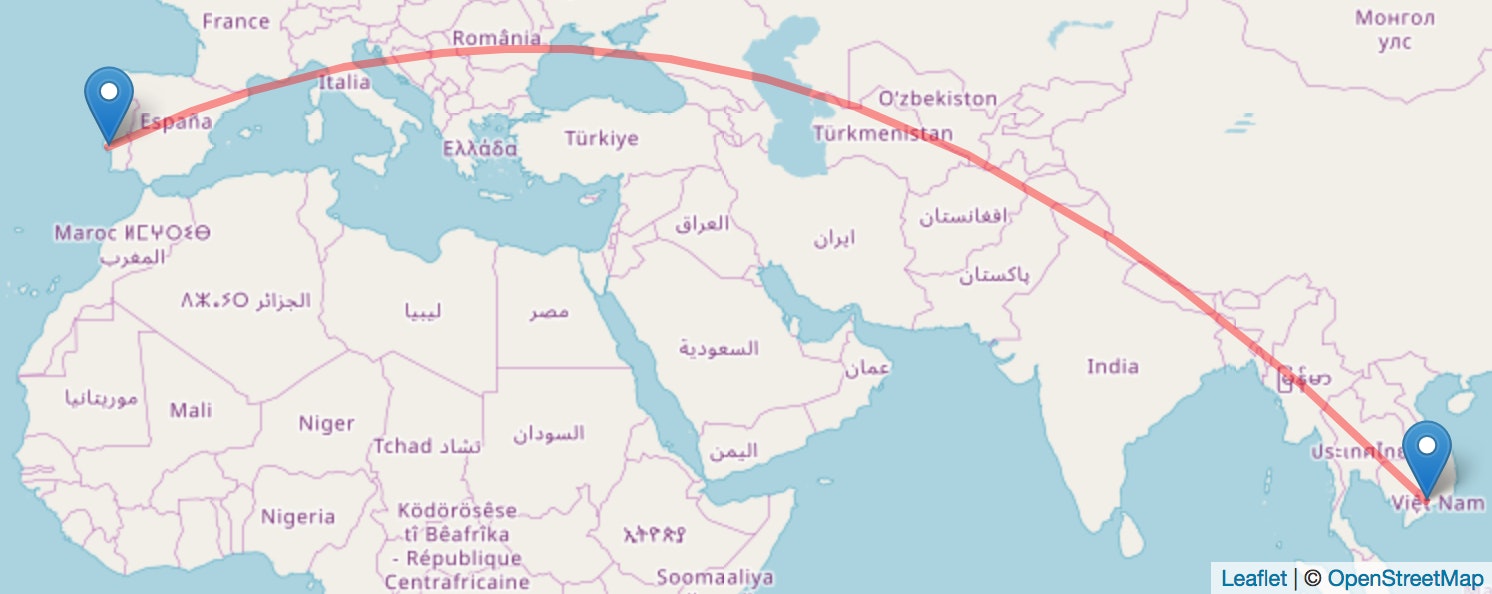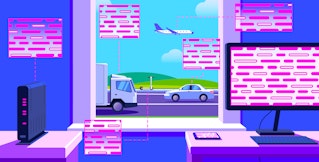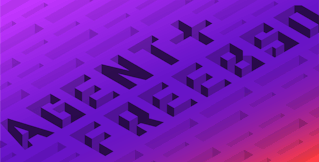
Daniel Maher

Daniel Andrade
Dan (Datadog)
Hi there. My name is Daniel, I'm with the community team here at Datadog, and I am here—somewhat confusingly—with another Daniel. Please go ahead and introduce yourself sir.
Daniel (Balena)
Hi! My name is also Daniel. I'm a hardware hacker in residence at Balena. I'm based in Lisbon but currently talking from Vietnam. I'm excited to be here today!
Dan (Datadog)
I'm excited to have you here as well! So let's jump right in to you and your story.
Daniel (Balena)
I've been working with software and hardware since I was very young. I graduated as an electrical engineer in 2014. Since then I've been working mostly with hardware design and web development, going from one to the other every two years. Now I'm just combining everything together and working with a lot of IoT projects.
I really like electronics and I really like building things.
Dan (Datadog)
That sounds really interesting! What was the first project you worked on where those interests got combined together?
Daniel (Balena)
Back in 2008 I started building mood lamps where you can control the colors from a device on the Internet, a cell phone, over Bluetooth, whatever. That was the first connection of electronics with Internet, software, and web development—everything combined together. And then a few years ago I was working for a company called Unu in Berlin, where we were making a smart scooter.
Daniel (Balena)
I left the company and decided to travel for a bit, then moved from Berlin to Lisbon and went back to web development full time because it was easier to work remotely as a freelancer. But then, after a year, I was kind of missing the smell of solder in the morning, haha.
I have all of my devices connected to the Balena Cloud and Datadog.
Daniel (Balena)
That's why I started looking for a remote job that I could actually work with solder again, and why I joined Balena as a "hardware hacker in residence". I basically build use-case projects with the platform that the company developed, which is how I ended up building a project with Datadog. I really like electronics and I really like building things, so this works well.
Dan (Datadog)
Excellent. Let's talk a little bit about your current role of "hardware hacker in residence". I really like that title. Can you tell me a little bit about that platform and about some projects you've built?
Daniel (Balena)
Balena builds the infrastructure for managing a fleet of IoT devices. The company started back in 2013. They managed to port Docker to the Raspberry Pi, ARM processors, and things like that. And that's when everything started—like oh my god, once you're able to run Docker on an embedded device, then you've solved so many of the IoT edge problems! Stuff like having to update the software, or update firmware over the air—and then if the network dies while you're updating, everything crashes and the device breaks.

Daniel (Balena)
There are multiple different projects but the main one is called balenaCloud, which is everything that you need to run and manage a fleet of IoT devices. There are so many people who would benefit from using this, but they just don't really know that the company exists yet!
Daniel (Balena)
So last year Balena said, "okay, let's hire some people where their full time job is to promote the platform by building projects and helping people." That's me! I build on a daily basis. For example, the first thing I built was a Bitcoin traffic light. It's super simple—just like a fun weekend project that someone can build to learn a little bit more about the platform.
Daniel (Balena)
Everything can be done through the Balena platform once it's connected. Another project that I did was around how to connect a Raspberry Pi—or any other IoT device—to Datadog. For that we need to install the Datadog Agent and from there, people can start super easily managing and monitoring things like the power, the processing, how much RAM it's using, whatever. All the stuff that Datadog is really good at.
Dan (Datadog)
That post was how you and I connected. It made me want to rush out and buy a kit, haha.
Daniel (Balena)
Yeah! So, imagine I am a user of Balena and I'm deploying temperature sensors around a shopping mall or something like that. I want to have all this information displayed in a Datadog dashboard. So all I need to do is go to the blog post, follow the tutorial—which should take like five to ten minutes to get started—and once everything is running, I have all of my devices connected to the Balena Cloud and Datadog.
Daniel (Balena)
So, yeah, that's what I do. I try to do a project every one or two weeks depending on the complexity.
Dan (Datadog)
It's really great that you have an opportunity to marry your two passions together, and to be able to do R&D projects and release them out to the public—out to the community. I imagine that you're learning new things every day.
Daniel (Balena)
Yeah. We have a lot of users going through the tutorials and giving us feedback where they tried things that we didn't think about. They are trying to do it wrong. We take that and try to make it easier for everybody the next time.
Dan (Datadog)
What would be an example of something that a new user would get wrong? What common incorrect behavior or assumption?
Daniel (Balena)
So, take for example someone that has never used git before. Right now there are two ways to push code from your computer to the device. The old way uses git. You clone the repository to your computer and then you add an origin to the Balena server. But some people SSH to the device and try from there. That's a common mistake. We're trying to figure out the best way to tackle it.
Dan (Datadog)
So what made you go with Datadog for one of your more recent projects?
All the stuff that Datadog is really good at.
Daniel (Balena)
We really like Datadog because it's pretty straightforward to get started. I used Datadog before with one of my VPS servers, just to give it a try. It's so easy. You just install the Agent and then it's already start tracking the CPU usage and all the other basic metrics. Version 6 of the Agent works great with ARM processors too.
Daniel (Balena)
We also have users that already use Datadog with their products, so we have people on the forums asking about it, trying to figure it out. We help them on the forums, and if it's a common question or a tricky answer, we'll go and write a full tutorial.
Daniel (Balena)
Also, I'm, like, a really big fan of metrics in general. I love seeing data. Yeah, I'm such a nerd, but I love numbers. Being able to look at the screen, see a bunch of charts of my devices uptime and things like that—it's pretty cool.
Dan (Datadog)
I can assure you that we feel the same way!
Dan (Datadog)
You mentioned that you're based out of Portugal but you're currently in Vietnam—that's a cool change of pace! Personally, I'm big into remote work; in your estimation, is this something that you see as more and more important going forward, or is this something that is going to remain niche?

Daniel (Balena)
It varies a lot from person to person. My wife and I have been travelling in South East Asia since December. We decided to escape winter even though Portugal doesn't get too cold. She also works remotely so it works perfectly with us. But sometimes I do miss a little bit of the office life as well. Balena is almost fully remote. I think that around 90% of the company works remote even though we have offices in Athens, London, and Seattle.
Note: Since this interview was conducted, Daniel (Balena) has returned to Portugal—but he’s still enjoying the remote-work lifestyle!
Daniel (Balena)
Companies should be more open to remote work because some people just work better from home; less distractions. Some people actually need the office environment. I think the best way would be to be able to do both. Sometimes you miss a little bit being in the office, but also you miss the freedom of being able to work remotely.
Dan (Datadog)
Cool right on. Alright before we wrap up, do you want to give a shout out to a community or something that you're working on?
Daniel (Balena)
Yeah! I am currently working on reviewing a few alternative UPS [ed. uninterruptible power supply] options to keep devices such as the Raspberry Pi or a balenaFin up and running in case there is a power outage—kinda important for unmanaged devices that can't go offline or just to improve overall reliability.
Dan (Datadog)
Awesome. Thanks for taking the time out to talk with me!
Daniel (Balena)
You're welcome, it was great talking to you, too.
Keep the story going!
If you’re interested in developing for the Datadog platform, check out the Developer Tools section of the Datadog docs—don’t miss our regular Community Office Hours either!





